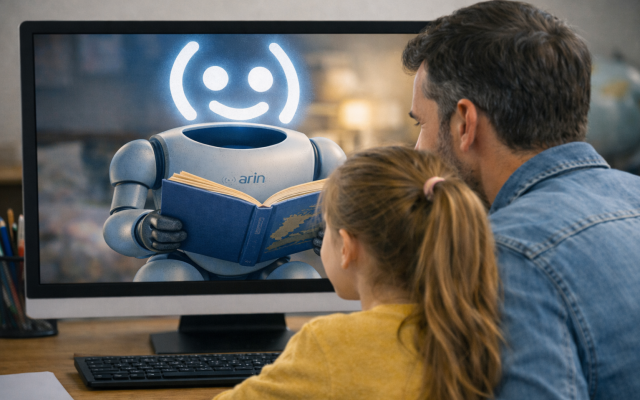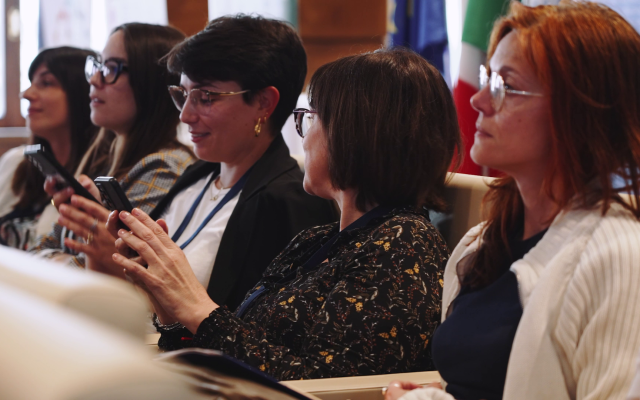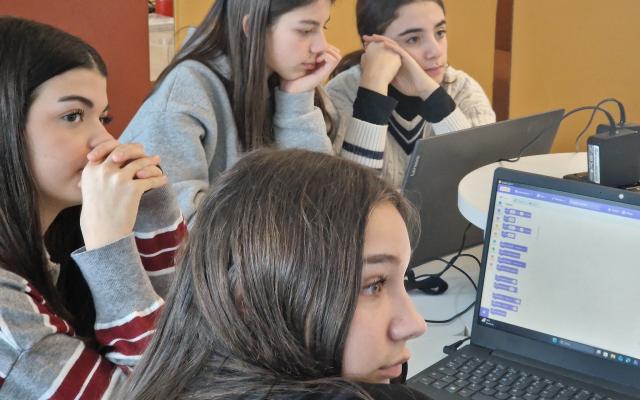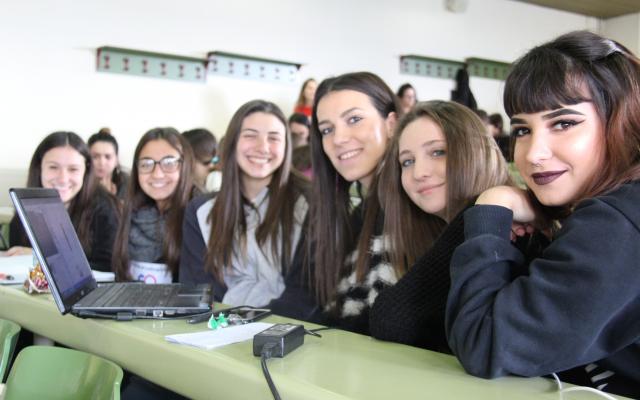Coding Girls, 100 students in competition at the university
The University of Cagliari is hosting the second stage of the national tour of Coding Girls with the hackathon ‘Rethink. Artificial intelligence & design thinking at the service of the territory’, the final event of the Ital.IA Lab project, created with Microsoft Italy.
Over 100 students from four Sardinian high schools (Brotzu, Ciusa, Giua, Paglietti) took part in a challenge to come up with innovative solutions, capable of responding to the needs of the community through the use of artificial intelligence. They were guided by two young university tutors and the design thinking method, which allowed the teams to work collaboratively and creatively, experimenting with the potential of AI as a tool to improve people's lives.
The challenge: fairer and more sustainable tourism
The challenge launched during the hackathon asked participants to design innovative solutions that, through artificial intelligence and a human-centred approach, would make tourism more engaging, accessible and respectful of the local area. Students, divided into teams, worked to imagine immersive digital experiences and tools to enhance the ‘hidden’ heritage with the aim of transforming culture into a living resource, capable of generating sustainable and conscious development.
The winning teams
1st place: Authentic Sardinia by team 10
In team By Piermario Satta, Elena Decandia and Gian Nicola Spanu.
Description: Developing rural infrastructure means investing in things like roads, public transport and essential services in rural areas. This makes them not only more accessible but also more attractive. It would make it easier for tourists to reach lesser-known destinations, and as a result they, together with advertising campaigns, would make these areas better known thanks to their experience and knowledge of them.
2nd place: a tie between teams 1 and 2, the groups ‘TT Le Girlzz’ and ‘Le Superchicche’
ExploreSmart by team TT Le Girlzz
In team Letizia, Alberto, Alessia and Gabriele
ExploreSmart is an innovative app designed for sustainable tourism management: it manages bookings to limit the number of daily visitors; it organises events and creates personalised websites for holiday farms, bed & breakfasts and other facilities, in order to give visibility to small businesses and promote places with fewer tourists.
TuoTour by the Le Superchicche team
In the team Giada Nappi, Asia Frau, Marina Corsi
A digital application that can be used to control the number of tourists at various places of interest in the city/country in such a way as to distribute them in a balanced manner; that gives suggestions on where to go according to personal tastes revealed to the application following games or quizzes; and that makes visitors behave in an appropriate manner.
3rd place: Terra viva by the Trallalero Trallalà team
Team members: Daniele Pischedda, Riccardo Genna, Andrea Cossu
Terraviva is a digital platform that connects tourists with authentic experiences organised by local communities in small Italian towns.
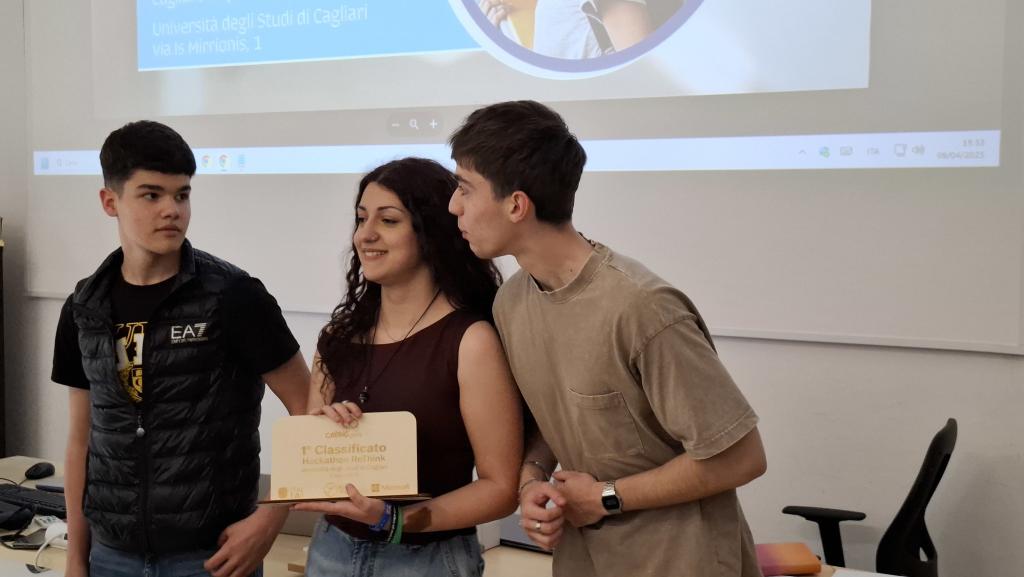
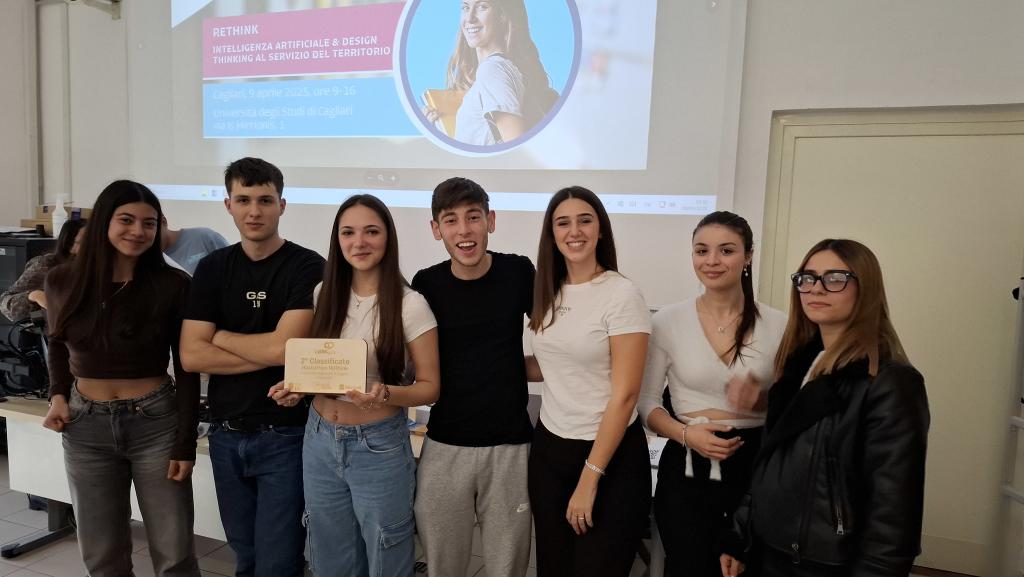
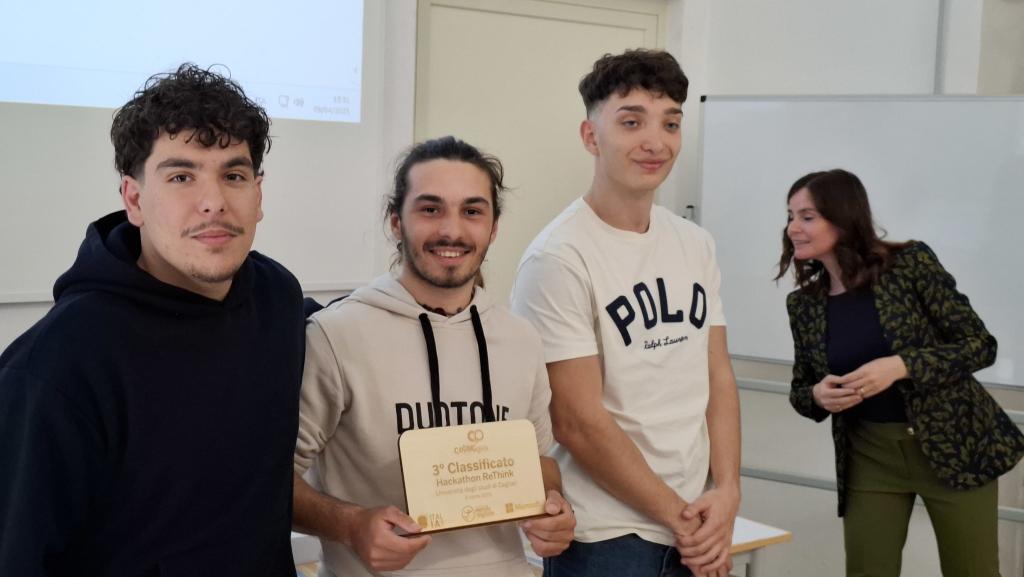
The university as a driver of inclusion and innovation
Gianni Fenu, vice-rector and ICT delegate of the University of Cagliari, did the honours and emphasised the importance of integrating girls into Information and Communication Technologies study programmes.
‘In our university we have been working for years to promote quality and inclusion policies, directly addressing the gender stereotypes that still today hinder women's access to scientific subjects. Girls play a fundamental role in the community and we must continue to encourage their active participation also in the field of ICT, which is and will be increasingly strategic’.
The hackathon is a concrete example of how the university can act to open the doors of the future to everyone, shortening the distances between training, research and social impact.
The value of the third mission: university, schools and territory
During the event Riccardo Scateni, director of the Department of Mathematics and Computer Science, also spoke, highlighting the value of initiatives such as Coding Girls in breaking down stereotypes and creating synergies: ‘Computer science is often perceived as a male discipline, but the reality is quite different. Events like this serve to dismantle distorted visions, bringing out the talent and passion of girls. They are also part of the so-called third mission of the university: to bring scientific and educational content out of the classroom, interacting with schools and communities to contribute to the development of the local area’.
Skills for the present and the future
Maria Cristina Carrisi, associate professor of the Department of Mathematics and Computer Science, who has been collaborating with the Fondazione Mondo Digitale for years to bring Coding Girls to Sardinian schools, also spoke about the commitment in the field: ‘The project involves schools not only in the capital, but also in more remote areas, where it is often more difficult to access these opportunities. The aim is to introduce young people to artificial intelligence as a tool for finding concrete solutions, also in terms of tourism, enhancing the specific characteristics of the territory. We must provide the new generations with the skills to consciously face the technological revolution underway’.
A collective energy that looks to the future
The day in Cagliari marked not only the conclusion of the Ital.IA Lab programme – which involved over 600 students and 15 university tutors in Campania and Sardinia – but also the beginning of new narratives. Young people become active protagonists of change, capable of combining technology and humanity, innovation and care for the territory. Thanks to the collaboration between universities, schools and businesses, artificial intelligence is transformed into an inclusive and accessible tool at the service of the common good.

